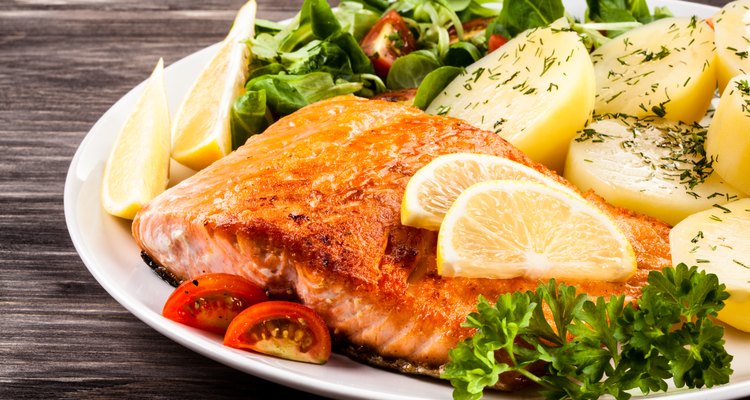
gbh007/iStock/Getty Images
Phosphatidylcholine is a fat molecule that contains the essential nutrient choline. This choline-containing compound plays a role in nerve impulse transmission, fat metabolism, and maintaining the structure of cells. Most of the choline in foods is found in phosphatidylinecholine, according to the Linus Pauling Institute. The recommended amount of choline intake for adult males is 550 mg per day, while it is 425 mg per day for adult females.
Beef And Fish
Meat and fish are good sources of phosphatidylcholine, according to the Linus Pauling Institute. A 3 oz serving of beef liver contains 355 mg of choline, while 3 oz of cod contains 71 mg. Other meat and fish sources include beef cuts, salmon, and canned shrimp.
Milk And Eggs
Consuming milk products and eggs can help boost your intake of choline. One large egg can supply you with 126 mg of choline, while an 8 oz serving of skim milk offers 38 mg. The Linus Pauling Institute cautions that strict vegetarians or vegans who do not consume eggs or milk, in addition to other animal products, may be at risk of choline deficiency.
Other Foods
Other foods you consume may be a good source of choline. A one-cup serving of toasted wheat germ contains 172 mg of choline, according to the Linus Pauling Institute. A one cup serving of broccoli contains 62 mg of choline. Other good sources include Brussels sprouts, peanut butter and milk chocolate.
Related Articles
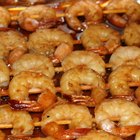
A List of Foods That Contain Choline

What Foods Provide Calcium D-Glucarate?

How to Cook Moose Steaks

L-Lysine for Hair Growth

How Many Calories in a Taco Bell Bean ...

How to Cook Tilapia With Orange Juice & ...
How to Cook Buffalo Fillet
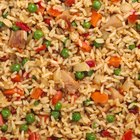
How to Cook Arroz Chaufa
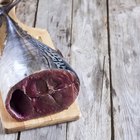
How to Smoke Tuna

How to Tell If a Pork Roast is Done

How to Cook Frozen, Boneless & Skinless ...

How to Cook Moose Meat
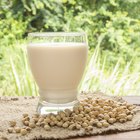
Fiber in Soybeans

Substitutes for a Tuna Steak

Which Vitamins Can Help Reverse ...
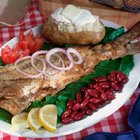
How to Cook a Bullhead Fish
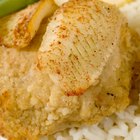
How to Cook Stuffed Tilapia

How to Bake Boneless Skinless Tilapia

Rules for a Vegetarian Diet
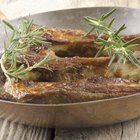
How to Sear Ribs
References
Writer Bio
Jill Andrews began writing professionally for various online publications since 2009. Andrews holds a Bachelor of Science in biochemistry/nutrition from Memorial University in St.John's, Newfoundland. She also holds a Bachelor of Science in occupational therapy from Dalhousie University in Halifax, Nova Scotia.
Photo Credits
gbh007/iStock/Getty Images